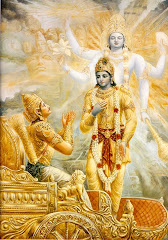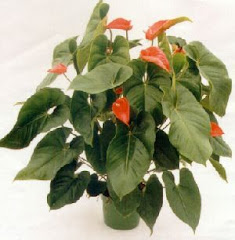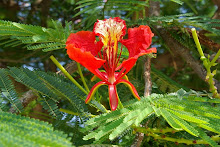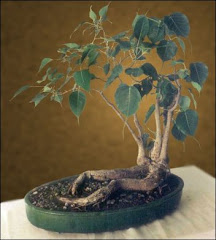
Two Thumbs Up!
I have been reading about this book in the blogosphere and even discovered that the author had a book reading @ Crossword - which I missed due to prior commitments. So, when I finally managed to go to Crossword (quite by chance) - I started looking for a copy... and found it too. I read the back cover and then began flipping through the pages. On page 11 itself I came across "Roko, hum idhar girega." This is classic Hingali - meaning that the said person wants to get off/get down at that particular spot/place. (Note: I opted for 'Hingali' instead of 'Bendi' for obvious reasons *wink*)
Needless to say I was hooked!
ABCD is not just a detective novel or crime fiction. It gives you a glimpse of the celebrated 'City of Joy' - Calcutta or rather a word picture of the sights and scenes of Kolkata, and Bengali culture - that is guaranteed to make a smile appear on your lips. And I mean no disrespect. Even if you haven't visited Kolkata, this book will transport you there.
You get to read about the 'paaras' (much more than what is usually meant to be a middle class neighbourhood or locality), the euphoria and intense rivalry brought about by 'Durga Pujo' (which coincides with 'Dussehra' in the North and 'Dassara' in the South of the Vindhyas.) Infact, the unabashed one-upmanship and brinkmanship displayed during the pujo would even make the fifty-year "Cold War" appear very thanda! Added to this are the subplots that involve finding a perfect match for a "wheatish-complexioned girl" and a one-sided love story. And of course the sacred ritual of going to the 'bajar' (bazaar or market, Bengalis usually refer to this as: "marketing korte jachchi") to buy vegetables and fish - Ilish maach (Hilsa), chingri maach (prawns), etc - with the 'bajarer tholi' (the nylon shopping bag) in hand. This bag is exclusively used for this very purpose and it is the unavoidable 'duty' of the man of the house to go to the bajar whenever required. And somehow Sundays are considered to be the best and most appropriate days to be spent in the bajar, tholi in hand, haggling over maach (fish), begetables (vegetables) and kochi panthar mangsho (mutton culled from a young goat). The whole experience is nothing like you would have seen/read/come across anywhere else, I tell you!
Now, here is the crime bit: In a middle-class Calcutta neighbourhood, the lives of four recently retired men take an unexpected turn when they stumble upon a crime and become detectives.
I have been reading about this book in the blogosphere and even discovered that the author had a book reading @ Crossword - which I missed due to prior commitments. So, when I finally managed to go to Crossword (quite by chance) - I started looking for a copy... and found it too. I read the back cover and then began flipping through the pages. On page 11 itself I came across "Roko, hum idhar girega." This is classic Hingali - meaning that the said person wants to get off/get down at that particular spot/place. (Note: I opted for 'Hingali' instead of 'Bendi' for obvious reasons *wink*)
Needless to say I was hooked!
ABCD is not just a detective novel or crime fiction. It gives you a glimpse of the celebrated 'City of Joy' - Calcutta or rather a word picture of the sights and scenes of Kolkata, and Bengali culture - that is guaranteed to make a smile appear on your lips. And I mean no disrespect. Even if you haven't visited Kolkata, this book will transport you there.
You get to read about the 'paaras' (much more than what is usually meant to be a middle class neighbourhood or locality), the euphoria and intense rivalry brought about by 'Durga Pujo' (which coincides with 'Dussehra' in the North and 'Dassara' in the South of the Vindhyas.) Infact, the unabashed one-upmanship and brinkmanship displayed during the pujo would even make the fifty-year "Cold War" appear very thanda! Added to this are the subplots that involve finding a perfect match for a "wheatish-complexioned girl" and a one-sided love story. And of course the sacred ritual of going to the 'bajar' (bazaar or market, Bengalis usually refer to this as: "marketing korte jachchi") to buy vegetables and fish - Ilish maach (Hilsa), chingri maach (prawns), etc - with the 'bajarer tholi' (the nylon shopping bag) in hand. This bag is exclusively used for this very purpose and it is the unavoidable 'duty' of the man of the house to go to the bajar whenever required. And somehow Sundays are considered to be the best and most appropriate days to be spent in the bajar, tholi in hand, haggling over maach (fish), begetables (vegetables) and kochi panthar mangsho (mutton culled from a young goat). The whole experience is nothing like you would have seen/read/come across anywhere else, I tell you!
Now, here is the crime bit: In a middle-class Calcutta neighbourhood, the lives of four recently retired men take an unexpected turn when they stumble upon a crime and become detectives.
The crime in question is the sudden disappearance (rather robbery) of a rare diamond - the size of a full-grown grape - and supposedly belonging to the Maharani (Queen) of Garhwal... from right under the noses of retired Joj Saheb Akhil Banerjee, Bibhuti Bose, Chandan Mukherjee and Debdas Guha Roy aka 'Chaar Padabi' or 'the four surnames'. In short: ABCD.
Why 'Chaar Padabi'? Well 'padabi' (or podobi) in Bangla means 'surname'. And Deb, Das, Guha and Roy are all independent or distinct Bengali surnames!
The crime does get solved eventually. But the build up to the solution is great fun... and includes the delightful anecdote about the Bhim Nag created 'ledikeni' - an ubiquitous round dark sweet - deep-fried balls of semolina, milk, khoya and sugar syrup stuffed with saffron and elaichi (cardamom) and fried in ghee to attain a rich brown colour. It is partially like a pantua and partially like a langcha (a specialty from Shaktigarh in the Bardhaman/Burdwan District of West Bengal) but very different in taste from them. This is quite apt 'coz no account of 'Bangaliana' (Bengali food culture) is complete without 'Bangalir Roshobodh' (the legendary sweet tooth of the Bengalis.)
Therefore, it's no wonder that the Bengalis have also come up with the delicately named "lobongo lotika" and the "mishti shingara" - small samosas filled with sweetened reduced milk that go straight from the wok into a syrup wash. The limitless possibilities that the samosa offers - the opportunities to play with tastes and textures; size and seasonings, fragrances and fillings - has inspired cooks down the ages. And the results are fascinating, often surprising, but always tasty. But none could think of the "mishti shingara" - the sweet singara - before the bhojon roshik Bangali, who is willing to undertake an epicurean voyage anytime. Bite into the Bengali shingara and the light puff pastry melts away to release the flavours of subtly seasoned potatoes or cauliflower teamed with green peas or groundnuts. Ah bliss!
But I digress.
Why 'Chaar Padabi'? Well 'padabi' (or podobi) in Bangla means 'surname'. And Deb, Das, Guha and Roy are all independent or distinct Bengali surnames!
The crime does get solved eventually. But the build up to the solution is great fun... and includes the delightful anecdote about the Bhim Nag created 'ledikeni' - an ubiquitous round dark sweet - deep-fried balls of semolina, milk, khoya and sugar syrup stuffed with saffron and elaichi (cardamom) and fried in ghee to attain a rich brown colour. It is partially like a pantua and partially like a langcha (a specialty from Shaktigarh in the Bardhaman/Burdwan District of West Bengal) but very different in taste from them. This is quite apt 'coz no account of 'Bangaliana' (Bengali food culture) is complete without 'Bangalir Roshobodh' (the legendary sweet tooth of the Bengalis.)
Therefore, it's no wonder that the Bengalis have also come up with the delicately named "lobongo lotika" and the "mishti shingara" - small samosas filled with sweetened reduced milk that go straight from the wok into a syrup wash. The limitless possibilities that the samosa offers - the opportunities to play with tastes and textures; size and seasonings, fragrances and fillings - has inspired cooks down the ages. And the results are fascinating, often surprising, but always tasty. But none could think of the "mishti shingara" - the sweet singara - before the bhojon roshik Bangali, who is willing to undertake an epicurean voyage anytime. Bite into the Bengali shingara and the light puff pastry melts away to release the flavours of subtly seasoned potatoes or cauliflower teamed with green peas or groundnuts. Ah bliss!
But I digress.
ABCD is the debut novel of author Suparna Chatterjee, a Bengali, currently staying in Bengaluru and she is undoubtedly thrilled with the reader response. "I'm indebted to Enid Blyton, Agatha Christie and Satyajit Ray. They planted in me a burning desire to become a sleuth, but I followed their path and did the next best thing!" she says.
There is no doubt about that. Yours truly for one could detect the unmistakable flavour of the Feluda novels by the versatile genius Satyajit Ray in this book. The demeanour and methods adapted by Akhil Banerjee is reminiscent of the supersleuth Feluda (perhaps unknown to the author herself). You can even detect a whiff of Lalmohan Babu aka Jatayu in one of the characters. I will not tell you which one, you tell me.
One is also reminded of Potla, Habul and gang - the popular bunch of good-for-nothings from Bengali literature - who are known for their many escapades - especially while organising Saraswati Pujo - when in reality they have bid goodbye forever to the Goddess of Learning - from their hearts and minds. Yet their enthusiasm is undiminished and so is their diligence and they manage to pull off the pujo (on a grand scale of course) despite empty coffers and very little time at hand. All due to Potla's patent ingenuity.
Even something as innocuous as Saraswati Pujo can lead to intense competition. Just watch the superb Soumitra Chatterjee-Aparna Sen starrer "Basanto Bilap" - to get the drift. This movie had great casting and superlative performances even by the members of the supporting cast with such stalwarts as Robi Ghosh, Chinmoy Roy, Anup Kumar and Shyam Laha making their presence felt. So much so that it is difficult to imagine that they were not the main actors/stars. Ah... the good old days! It is a small wonder then that old is gold. I wish to see the satraps of Bollywood remake some of the gems of Bengali cinema - without diluting the essence of the story - so that they get a larger viewership and movie buffs can enjoy some quality cinema and entertainment instead of the tacky fare dished out inspite of several crores wasted on them. E.g., The delightful "Chupke Chupke" starring Dharmendra, Amitabh Bachchan and Sharmila Tagore was a remake of the Uttam Kumar-Madhabi Mukherjee starrer "Chhadobeshi", and the equally enjoyable Sanjeev Kumar-Moushumi Chatterjee starrer "Angoor" was a remake of yet another Bengali classic - the Uttam Kumar-Sabitri Chattopadhyay-Bhanu Bandopadhyay starrer "Bhranti Bilash". I hear SRK is re-remaking "Angoor". Lets see.
Even the Hrishikesh Mukherjee directed Rajesh Khanna-Jaya Bhaduri starrer "Bawarchi" (1972) was inspired by the Tapan Sinha helmed "Golpo Holeo Shotti" (1966) with Robi Ghosh, Bhanu Bandopadhyay, Chaya Debi and other powerhouse actors in the cast. Needless to say, the original was cinematically far superior. This Tapan Sinha classic is a mind-blowing classic - a non-convoluted drama with a special message. It is sparkling, real, a slice of life and is in black and white, a tint that makes old films even more enjoyable.
But I digress again.
In ABCD we have the usual bunch of para bratulas - Partho, Somen, Poltu, Bhombol, Bappa and Jishu - headed by the able Biplabda. Biplabda reminds us of the great Bengali author Narayan Gangopadhyay's creation Tenida of "Charmurti", Potoldanga and "de la grandi mephistopheles, yak yak!" fame. But I have a feeling that the intense rivalry over Durga Pujo is not settled yet, and the one-sided love story is inconclusive too. Therefore, I am waiting for the sequel to "The All Bengali Crime Detectives". Eagerly. [Note on Charmurti: Tenida and gang, the others being: Kyabla, Pyalaram and Habul.]
BTW Bengalis have a patented word for 'para bratulas' - the unmatched "Rockbaj". It is not to be confused with the macho 'Rocky'. Bujhechen? And the unfriendly neighbourhood bully is the "parar mastan".
If I were to elucidate about Durga Pujo and what it means to Bengalis - "Probashi Bangali(s)" [Bengalis who stay a few grass fields away from Bengal; may be in Delhi, Karnataka, Jharkhand, Orissa, Assam or thousands of miles away in New York, Tokyo, London and Berlin], "Bangal(s)" [Bengali folks whose ancestors trace back to East Bengal, present Bangladesh], "Ghoti(s)" [Bengali folks who are originally from West Bengal] and "Bagh(s)" [offspring from mixed marriages between "Bangals" and "Ghotis" - conveniently derived from the "Ba" of "Bangal" and "Gh" of "Ghoti"] - this post will become a mile long, if not longer.
In every middle class locality (paara) a "Pujo Committee" would swing into action every year, sometimes the choice of office bearers would become so politicized that one almost felt that soon the RAF or the elite Black Cat Commandos may have to be called in - to restore peace among the community members. The fierce parental rivalry regarding the children selected for solo performances or lead roles were an unfailing annual event too. Ma Durga and her four offspring could bring out the worst in some and unmask many too, or so it seemed. I remember how the neighbourhood aunties (paarar Kakima[s], Mashima[s], Pishima[s] and Jyethima[s]) waddled about and strutted around like proud ducks and penguins and flashed menacing looks at competitors who till then were probably their offspring's best friends. Tension reigned supreme and everyone's BP climbed Mt. Everest. In retrospect, these incidents of intense rivalry and competition seemed amusing and juvenile. And rightly so!
However, in ABCD you do get a quick yet informative glimpse about how Durga Pujo came about. And till date I have not come across a more clearer definition of the Bengali term "Adda" - which is a way of life in Bengal and for the Bangalis - of all hues, shades and tints of colour, wherever they are. Bengalis have a fondness for debates and can indulge in conversations for hours. "Adda" is usually summarily translated/dismissed as "gossip" and not given its due courtesy/importance. This is sacrilege. Bengalis have an entirely different term for "gossip" which is "PNPC" - meaning "Poro Ninda Poro Chorcha". And "Adda" and "PNPC" cannot intermingle - there are clear lines and sessions for both.
Read ABCD to get a feel of the multi layered three-letter Bangla word - iye. It is short but not simple... filled with meanings, inner meanings, subtleties, possibilities, flavour and spice... and not always all things nice.
I wouldn't deliberate much on Rabindrasangeet - the songs of the great poet laureate Gurudev Rabindranath Tagore. The magical mystique of beautiful words powerfully strung together and resonating with mellifluous music is known as Rabindrasangeet. The bard's rich, diverse and vast literary oeuvre is virtually unmatched in the world. He was also a painter and a composer par excellence.
I have already elucidated a little about Bengali names and its socio-cultural significance. Do read up: Bhaalo Naam vs Daak Naam: What's in a name? (Part-I) and Bhaalo Naam vs Daak Naam: What's in a name? (Part-II).
However, in ABCD you do get a quick yet informative glimpse about how Durga Pujo came about. And till date I have not come across a more clearer definition of the Bengali term "Adda" - which is a way of life in Bengal and for the Bangalis - of all hues, shades and tints of colour, wherever they are. Bengalis have a fondness for debates and can indulge in conversations for hours. "Adda" is usually summarily translated/dismissed as "gossip" and not given its due courtesy/importance. This is sacrilege. Bengalis have an entirely different term for "gossip" which is "PNPC" - meaning "Poro Ninda Poro Chorcha". And "Adda" and "PNPC" cannot intermingle - there are clear lines and sessions for both.
Read ABCD to get a feel of the multi layered three-letter Bangla word - iye. It is short but not simple... filled with meanings, inner meanings, subtleties, possibilities, flavour and spice... and not always all things nice.
I wouldn't deliberate much on Rabindrasangeet - the songs of the great poet laureate Gurudev Rabindranath Tagore. The magical mystique of beautiful words powerfully strung together and resonating with mellifluous music is known as Rabindrasangeet. The bard's rich, diverse and vast literary oeuvre is virtually unmatched in the world. He was also a painter and a composer par excellence.
I have already elucidated a little about Bengali names and its socio-cultural significance. Do read up: Bhaalo Naam vs Daak Naam: What's in a name? (Part-I) and Bhaalo Naam vs Daak Naam: What's in a name? (Part-II).
My rating: The fresh and limpid writing style interspersed with humour and interesting tidbits of information is a readers delight. It pulls you into the narrative and keeps you engrossed throughout. Simple effective storytelling at its best!
The production quality of the book is pretty good while the book jacket cover is nicely done. It's colourful and instantly catches the eye.
I am going with a 4/5 for Suparna Chatterjee's debut novel... and awaiting her next book with high expectations - hopefully a sequel to ABCD.
Details of the book: The All Bengali Crime Detectives/ Author: Suparna Chatterjee/ Publisher: Rupa & Co./ Publishing date: January 1, 2011/ Language: English/ ISBN-10: 8129117827/ ISBN-13: 9788129117823, 978-8129117823/ Bookbinding: Paperback/ Price: Rs. 150 (Rs.90 on Flipkart)/ No. of pages: 192.














Thanks for this comprehensive review. Being part Bengali myself, I was really chuckling at some of your observations. Sounds like a good read.
ReplyDelete@ SG: It is :)
ReplyDeleteP.S. Thanks for stopping by my blog...
will pick it up from flipkart!
ReplyDelete@ Reema: :)
ReplyDelete